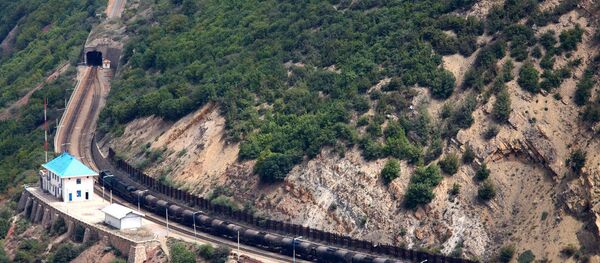"In particular, emerging markets along the Belt and Road are likely to provide new impetus for our longer-term development," Tsang was quoted as saying by the Hong Kong government's news department outlining budgetary measures to boost the economy.
The finance chief of China’s Special Administrative Region expressed hope that it would not miss the chance to expand ties with markets he described as a " big driver of the new economic order."
A summit on the role of the Hong Kong Special Administrative Region in the development of China's new Silk Road will be held in May 2016, Tsang added, echoing his announcement last month.
"I shall also lead a Belt-Road business mission in the fall to Central Asia, following last year's Belt and Road trip to Hungary, Poland and Germany," he added, inviting businesses to join him to gain first-hand knowledge of new markets.
In 2013, Chinese President Xi Jinping proposed the idea of linking China with Europe, as well as boosting ties with Asia and Africa, through a new Silk Road trade corridor.
Chinese Vice President Li Yuanchao said in January that the new Silk Road initiative would be developed as part of China's 5-year plan, which outlines the country's economic development goals for the 2016-2020 period.


